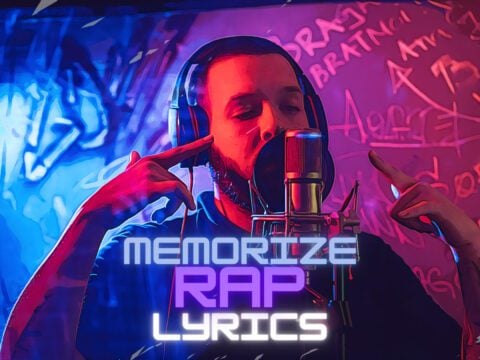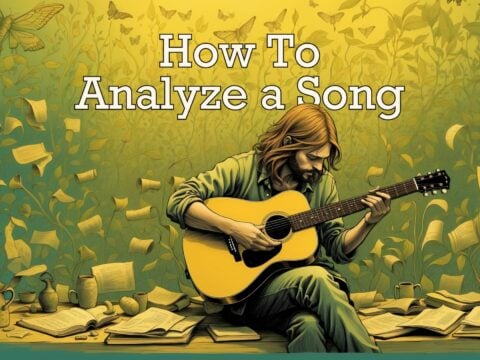Songwriting isn’t always roses and rainbows. The task can be quite neck-breaking, especially at times when your creative juice isn’t flowing. It’s during these times, when it takes you hours upon hours to write a single line worth of song lyrics, knowing a few songwriting tips will help.

I know it’s frustrating, but whatever you do… don’t give up!
What your going through is an all too common experience that other songwriters have to wrestle with. And what separates the best from the rest are those that truly persevere and stay committed to what they love doing the most – songwriting.
Allow me to share with you these timeless songwriting tips from top-notch musicians. It is my hope that at the end of reading this post, you’d have learned tips and techniques about songwriting that can help you grow your skill as an artist.
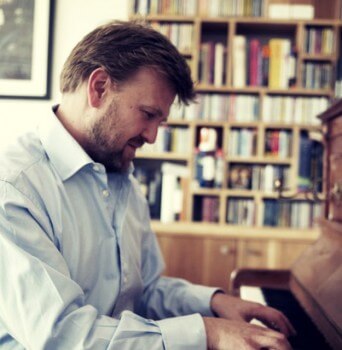
1. Know What You Want to Make Before You Make It
Builders don’t build a house without knowing its style, shape, size, and number of rooms. Have a snapshot of what you want to create.
2. Limit Your Options
If you’re making a living from writing you need to write lots. So you don’t have time to consider every option. Limit them; lack of choice breeds creativity.
3. Don’t Let Your Critical Voice Silence Your Creative Voice
There’s plenty of time to get it right later. Put on the page that you want to say how you want to say it. Then refine it.
4. Zoom In and Out
You want the rhyming to be elegant and the scanning to be smooth. But keep an eye on the bigger picture. Focus on the detail and zoom back out to make sure the main point of the song hasn’t been lost.
5. Your Girlfriend Always Cries at Your Latest Song
So does your mother. But the real reckoning comes from people who don’t know you.
6. Listen to It in Front of a Pro
You’ll feel it when it gets slack. Take note of your own reaction.
7. Ignore Writer’s Block
It doesn’t exist. Practice your craft anyway. Write a haiku, a piece of blank verse, a limerick. Write an instrumental piece using a particular scale or mode. Keep going.
8. Like Your Song
But don’t fall in love with it. It will change. It will change when somebody hears it for the first time, sings it for the first time when you hear it back after a couple of weeks. Don’t be precious.

9. Network, Network, Network
This is probably one of the most important out of the five. Meeting the right people is crucial for the career of a composer, musician, or anyone in the creative industries. You can have the perfect song or be the best guitarist, but if no one can hear you, then how can you progress.
10. Keep Writing
Try and write as much as possible. Even if it’s just a little bit every day, it will help you not only to develop as a songwriter/composer, but it will help you come up with more ideas quickly. Perfect for if you are commissioned to write something at the 11th hour.
11. Keep Motivated
It can be hard to keep motivated, especially if you are working a part-time job or studying in your spare time, but you have to keep battling through it. Find time to relax and enjoy life, as this will help with new ideas.
12. Don’t Give Up
It can be hard to accept rejection, but it is just a natural process. It doesn’t necessarily mean you are bad at what you do. Nine times out of ten it isn’t your ability it’s just not what they are looking for. Tip: Research the company or supervisor before you cold call / email them, as this can really help your chances of success.
13. Be Yourself
The last piece of advice from me is “just to be yourself.” When in meetings or emailing potential clients, don’t say are a master of everything if you can only write indie rock. This will only jeopardize your chances.
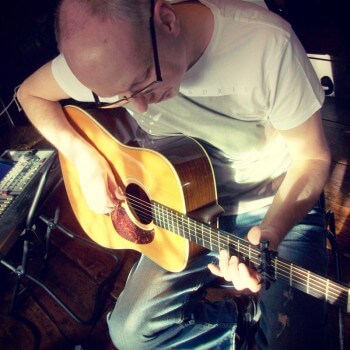
14. Never Wait for Inspiration to Start Writing Music
You’ll starve to death before you compose your first tune! The creative process starts when you wake in the morning and doesn’t stop until sleep in the evening. Throughout the waking day, creativity should be as natural as eating and drinking. This is where creativity is: seeing and hearing things in everyday situations: kids and partner in the house, talking and spending time with people, getting others’ ideas and opinions, going for a walk… To say it simply… Inspiration is life in general.
15. Take It All In
These influences are your ingredients in the musical cake you are about to bake!
When you pick up or sit at your chosen instrument, the creative process is 70% complete (ingredients?), the last 30% or so is drawing the threads together (the baking process?) At this point, creativity isn’t waiting for inspiration. It is using what you felt was important in the day. From this point on, you work in conjunction with your instrument, and the final composition is where your mood and fingers take you.
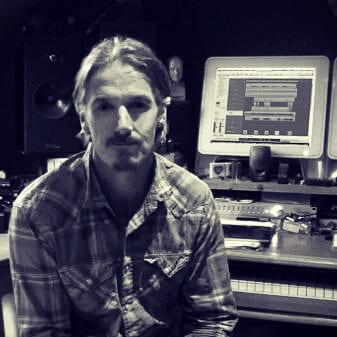
Tim Howarth
Songwriter and Producer
Tim Howarth
I’ve been writing and producing songs for many years, on my own and also co-writers. Many have been published, and many are still on my hard drive waiting for that inspired tweak to make it more marketable or just better! I’m still learning this craft, but here are a few songwriting tips that I’ve picked up along the way.
16. Start With a Title
Starting with a title is often a good way to break that feeling of “what is this song going to be about?” Like the headline of a news article, try and make that prominent in the chorus and embellish that title’s theme in the verses.
17. Write from an emotional standpoint
I find conveying emotion is one of the hardest things to express lyrically in a convincing and original way. Still, one of the best pieces of advice I’ve gleaned is to write FROM an emotional standpoint, not ABOUT the emotional standpoint. It’s not that obvious.
18. Don’t assume the listener will understand
Just because you know the backstory to your lyrics, don’t assume the listener will understand it. Sometimes we feel it all makes sense to us, the writer, but read it to a friend or someone who has no experience of your story, and it often falls short of making any sense.
19. Have the melody
A lyric can often dictate the meter of the melody, so coming to a lyric with the melody already written can be a way of guiding the lyric with the sound and style of your song. I often sing nonsense/extemporaneous words into the mic just to write the melody, but often that nonsense ends up guiding the lyric with word sounds and rhythm.
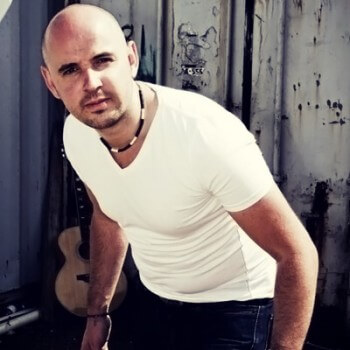
20. Be honest with yourself
Everybody has their own way of writing, so it’s important that you spend time finding yours. Write as many songs as you can, ask for opinions outside your friend circle, and take most of it on board. I can suggest many tips, but they all boil down to two key songwriting tips… Be honest with yourself and edit!
21. Edit, Edit, Edit = Being Proud
You will always know when a song is special and when it isn’t. The reason why you and everyone else knows this is because when a good song reaches out to us, we buy it, and it lasts a very long time! I assure you that apart from the rare occasion, a lot of editing and work has gone into creating what sometimes feels like a very simple song. With this in mind, when playing back your latest work, if there is a line or section that does not speak to you, then realize that it will not speak to your listener either and change it. If it’s still not right, then change it again. Edit, Edit, Edit = being proud of your song no matter how well it does!’

22. Always collecting new ideas
I am always collecting new ideas for music and lyrics at the most inopportune time, like in the middle of the night or when I’m traveling in my car. That’s why I always carry a hand-held recorder with me so I can dictate ideas into it. Most of my song ideas come from those sporadic, organic moments, rather than sitting down and trying to write something on the spot. I always have a catalog of song ideas ready to go in my hand-held recorder, so when I need ideas, they’re there – ready to be explored.
23. Having a songwriting partner
I also find having a songwriting partner like Liv has helped me grow exponentially as a songwriter. Having someone to collaborate with, bounce ideas off of, and develop with, makes a huge difference. I’ve learned more working with other musicians and songwriters in my musical career than I ever did studying music theory. I also find our local library to be an incredible source of inspiration, as they carry a huge section of songwriting books and other materials.
24. Don’t strive to be original, just try to be yourself
If you find you are stuck for ideas, take a break, go for a walk on the beach or in the park (definitely not the mall, though). Sometimes it is a good strategy to take a break from music altogether for a few days or a week – then come back to it. For instance, if you play the guitar, come back to your instrument and use two strings only. See what you can come up with only using those two strings.
It also helps to mix up your influences. If you’re into heavy rock, listen to a Classical radio station for a few days. If you are into Drum and Bass, listen to some Gregorian Chant Benedictinos. Also, sometimes being a songwriter involves a good amount of depression and loneliness.
However, if you are a perfectly healthy person and social animal – mix up your routine. Don’t eat for a full day (but drink 4 cups of green tea). The next morning, just hit the piano. Don’t take songwriting too seriously. You’re lucky if you have supportive family and friends. Start early. That way, by the time you’re 58, you are going to be like Diane Warren!

John Oates
Songwriter
25. Sing!
You do not have to have a great sounding voice, but singing hundreds, if not thousands, of songs will help internalize the songwriting process. Join a singing group, sing a variety of styles from religious to pop. For example, each song will help you learn about structure, harmony, melody, and lyrics without you having to think about it.
26. Guitar or keyboard?
Learn to play and understand the formation of chords on a harmony instrument such as the guitar or keyboard. You do not have to be virtuoso, but being able to form chords and know how they are related to each other will help you when you begin to develop your ideas into songs.
27. Rhyming helps
When writing lyrics, get into the habit of rhyming your phrases and take notice of the number of syllables you are using in each line. Rhyming helps to fix the lyrics into the memory, and so will make them memorable. The most successful songs have the same number of syllables within each line of verse. This repetition helps the mind to learn and remember the song – your ultimate goal!
28. Find the hook!
The part, or parts, of the song that makes you want to sing it again or for your audience to listen again. Patterns make music stronger – once you combine the rhythm of the lyrics with the melody you create a unique signature that should be exploited as a feature of your song. Repetition of melodic rhythms will help to make your song memorable and stand the test of time.
29. Keep it simple
Be economical with your ideas – keep it simple. Remember, the song “Happy Birthday” has generated the most revenue.
30. Stress!
I’m not talking about the day to day kind, but the stress we place upon words within a sentence. Some words have stronger stress than others. Your task is to place the stressed words upon the stronger beats within the music.

31. Songwriting Comes to People in Different Ways
We all experience different methods of writing. A little tune we’ve just composed. A phrase we’ve heard. A feeling we want to express. They can all lead to sitting down and turning it into something great. I hear stories of writers who say, “Yeah, I sat down and wrote it all in 10 minutes.” This hardly ever happens. Most songs need quite sometime before they are finished article. Especially if you’re writing both lyrics and music. Elton John writes quickly, but he receives the full lyrics from Bernie Taupin.
32. If You Think It’s Not Finished Properly Then It Isn’t
He sits down and writes the tune that instinctively hits him. I’ve heard songs from people where they are really only half-finished. The writer(s) kind of give up. “Ahhh..that’ll do.” Well, you know what? It won’t do. If you think it’s not finished properly, then it isn’t, and it’ll sound like it.
33. Be Critical of Your Work
So, my tip is….be critical of your work. Think of yourself as a listener, not a writer. If you can’t finish it yourself, then collaborate. Your partner may provide the magic ingredient.
Wait… We Have More Songwriting Tips!
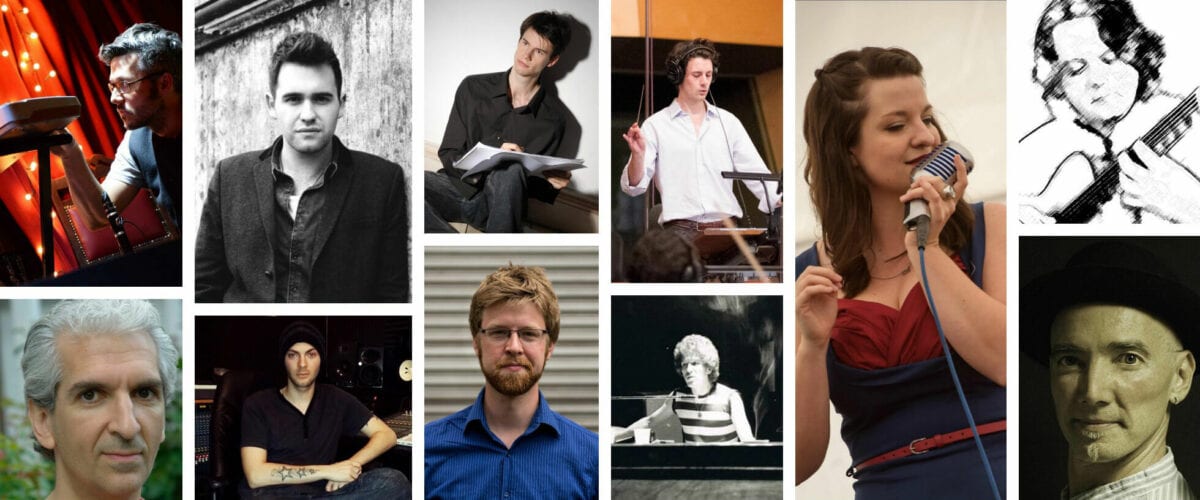
The response that we had on our first songwriting round-up from world-class musicians was quite phenomenal… so much so that we’ve had several artists contacting us asking for more tips from expert musicians.
Of course, since one of our goals here in Lyreka.com is to help artists in any way we can, we are more than happy to accommodate. Allow us to share with you our next round of expert musicians. Enjoy!
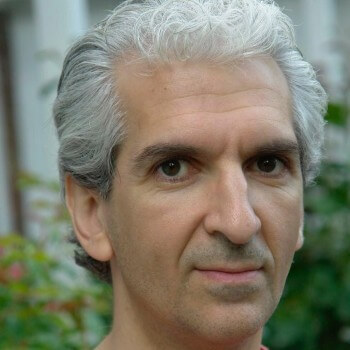
34. How Do You Know When You’ve Written a Decent Song?
If I can hear a song/track I’ve written and enjoyed it in the same way I enjoy a great song written by one of my heroes, that’s usually a good sign. That is what I strive for (though I usually fail!) each time I create a new piece, whether it’s a song or an orchestral piece for a TV soundtrack.
I still remember David Foster’s words when I was lucky enough to see him interviewed in Tokyo many years ago. Asked what the ‘Foster Magic’ was, he replied It’s not magic, it’s hard work. I go to the studio every day, and if the song isn’t perfect, it isn’t finished
.
Those words have stuck in my mind for more than 20 years, and I try to live by them. As a result, many song attempts end up in the trash! If I feel that part of the rough idea is ‘perfect,’ I will work on it until I believe the rest of the song is as good. Lyrics are my weak point, but my regular songwriting partner Mike Brayn is an incredible lyricist.
This brings me to something I tell other writers – I would rather be 50% of something great than 100% of something merely good. It’s very rare to be so talented that your work can’t be improved by collaborating. Look at how many great songs were written by a two-person team.
Funnily enough, I co-wrote the two original songs on Rebecca Newman’s recent #1 classical crossover album, which features songs by greats such as Puccini, Mozart, and David Foster! It is truly an honor to be on the same album as those writers!

35. Set Your Imagination Free
Writing music for a living is great fun, but remember to be true to yourself. Do not try to fit into a preconceived style, but set your imagination free and write the music you are dreaming of.
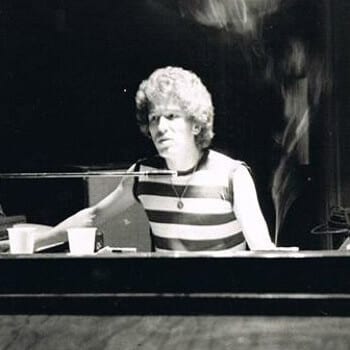
36. Remember You’re Working in the Music Business
First of all, a reminder to all songwriters that you’re working in the music business, and the clue is in the title – it’s a business. When I started, all of my songs were perfectly crafted works of art, written with true meaning right from the heart and not to be changed, amended, or interfered with in any way. What I soon found is that if the market isn’t buying, you aren’t selling!
Now with BIMM, LIPA, BRIT School, and sundry dedicated university courses, that naiveté is largely a thing of the past. But cannibalizing and mixing and matching material is par for the course. Another thing to be aware of is that all songs are derivative, some more so than others.
Hello, Eric Carmen (Rachmaninov), Greg Lake (Prokofiev), and Barry Manilow/Take That (Chopin). Okay, so it’s less blatant these days, but if there’s something that’s out of copyright fill your boots…subtly! And that means you need to listen to all types of music and soak everything in like the proverbial sponge.
Popular songs have a basic structure, including verses, bridge, hook, and middle eight. And many successful songs use what I call ‘cliché chords,’ particularly the ‘anthemic.’ I’m not going to tell you what they are because if you can’t spot them from listening, then there’s no hope for you. There are, of course, exceptions to this rule. But for now, let’s stick to the basics because it’s the basics that need to be in place before we start experimenting.
37. Key Considerations
So, having started writing, what are the key considerations? Well, if you’re writing for yourself, you should be aware of your audience and your image because that’s what you’re writing for. Then it’s down to production, working with the right producer to interpret your songs to capture that audience and get them to do what you need them to do, buy your music and support your gigs.
The same premise applies when writing for an artist and working collaboratively is incredibly helpful in developing your craft. After all, that’s what you’re doing. Your writing and your songs will develop over time so sticking with it and believing in yourself is pretty fundamental.
38. Registering Your Songs
One thing I always recommend is registering your songs with a collection agency such as PRS. A successful songwriter can earn a healthy living from the royalties the agency collects on your behalf, so think carefully before selling a song outright. Assignment and Licensing are viable options, but if someone offers to buy your song outright can bet your last dollar, they are unlikely to be doing it as a philanthropic gesture!
And while most successful songwriters are also musicians in their own right, unless they’re also headlining performers they don’t write for fame and glory. Every heard of Rod Temperton? Okay – look him up and prepare to be amazed! And with hard work and dedication that could be you.
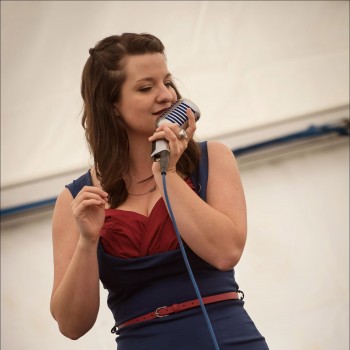
39. Don’t Force Anything
A song or a piece that has been forced to sound a certain way or do certain things always sounds forced and contrived: always let your music come from a place of honesty.
If you’re needing to fill a commission brief, do your research – if you’re writing for yourself and have decided to write a blues today, fine – use what you know about the blues to guide you, but don’t be stuck by what “needs to be in a blues song,” let the song go where it wants to go. If you’re suffering from writer’s block, it’s often because you’re trying to force your music to do something specific, either a particular structure or writing lyrics about a certain subject matter – if one area of a song/piece isn’t happening, stop trying to force it and work on something else.
If the lyrics are alluding to you, focus on the chord structure for a while. If you’re not happy with the melody, play around with different lyrics. And don’t always assume you need to write linearly. If you can’t figure out the middle section but have an idea for the end, do that bit first. Also, remember that timescale is relevant only to the piece at hand. One song you write in a day is not necessarily worse or better than one that took you months. Each song/piece will have its own timescale as to when it’s going to be finished.

40. A Song is Pretty Much Everything
Of all the songwriting tips, the one you need to know first is: a song is pretty much everything. It’s the most important connection to others. A well-crafted song will hold people’s hearts and attention more than style, flashy solos, or just about anything else. Some gifted singers can make almost anything sound wonderful, but they are few and far between.
41. Consistent Practice and Work
Writing songs that truly touch people is a combination of things. Inspiration is part of it but the main element to great songwriting is doing it as often as possible. Consistent practice and work at your craft is the single biggest factor for success. It creates a foundation that allows the magic to come in and touch your melodies and words.
42. Listen to Other Songwriters Material
Listen to other songwriter’s material, especially hit songs. The idea is not to necessarily copy them but to gain as wide an understanding of what’s possible and what works. Check out material from 60 years ago as well as contemporary music.
In the end, write the music and tackle the subjects that matter to you. What others do is what they do, so remember to be true to you. Don’t let discouragement stop you. If you don’t like what you’re writing, keep writing! It will eventually lead you to where you need to be artistical. We all have fallow periods where we wonder why we’re even bothering. Do it because you love it.

43. Dig into What You’ve Got
If I could only give you one tip for songwriting it would be to “give it your all.” Don’t get too caught up in buying expensive equipment and software. Your phone plus a couple of free apps can do more than most studios could 30 or 40 years ago – buy wisely, dig into what you’ve got, and become an expert in exploiting that.
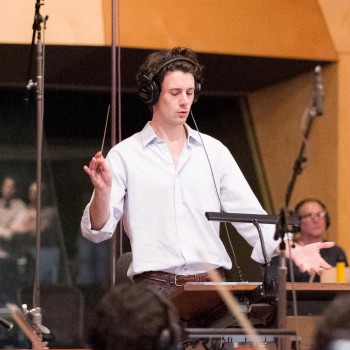
44. Write Something Every Day
Just like playing an instrument or learning a sport, composing is a craft that needs to be nurtured through practice, practice, and more practice. Quite simply, the more you do it, the better you get at it.
Please don’t wait for inspiration to strike; write something every day so that when you do get that great idea, you have the technique and the experience in place to craft it into something meaningful.
It doesn’t matter if you end up discarding 95% of what you write. The process of creating it will have made you a better composer/songwriter and will pay dividends on the other 5%.
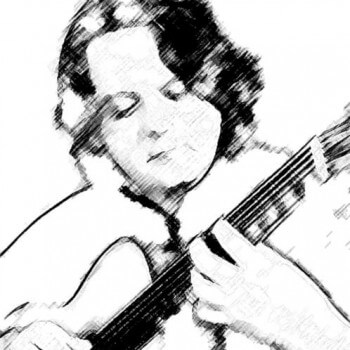
45. Be True to Yourself
The truth is that whatever you write. Some people will like it. Some will dislike it. Some will be disinterested. So, write to interest yourself. Write to express an idea or some part of yourself that you are curious about.
46. Write What Inspires You
Look into your mind and meditate on your artistic goal. Whether it’s a song, a big band score, or a piece of production music, are you inspired? Are you interested? Is there something there that needs to be said? Go with that feeling. Listen to yourself. Entertain yourself.
47. Write What Interests You
Tap into that spirit of adventure and exploration that lives within us all. Allow your music to be discovered, to be born, and to become alive.
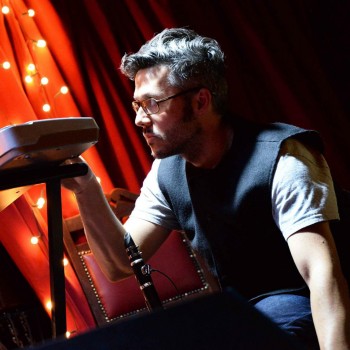
48. Search for the Truth
It’s basically impossible to condense everything down to one important “must-do,” so rather than the host of other important aspects of writing music such as focus, discipline, cutting edge sounds, interesting orchestration, even networking and some kind of business ‘sense,’ I have gone for the importance of finding an emotional truth and honesty in your music. As a result, what comes will be a sense of originality as well; because even you are musically treading a path someone else has already walked (which you undoubtedly will be), it will still be YOUR take on it. Furthermore, it will be music that you feel passionate about and committed to and willing to go the extra mile to make perfect.
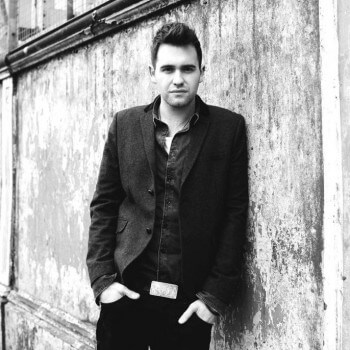
49. Should you be a Great Writer From the Outset?
In my experience working with new writers, the most common barrier to progress is the idea that you can and should be a great writer from the outset. This way of thinking is not only demoralizing but also inherently limiting in terms of creativity, as you are constantly judging and feeling frustrated with your work, which is likely to result in feeling ‘blocked.’
Building your writing skill and experience is a development process, like learning any other discipline: you wouldn’t pick up a guitar for the first time and expect to be able to play like Hendrix! For some reason, when it comes to songwriting, people often seem reluctant to allow themselves to be ‘beginners’; they become disillusioned and frustrated with their work and then often become ‘blocked’ and unable to write. I find this video by Ira Glass, both useful and inspiring.
In general, whether you’re a beginner or an experienced writer, adopting a philosophy that the process is equally as important as the outcome will really help to free up your creativity. We all tend to have a habit of judging, analyzing, and critiquing much too early on in the creative process, limiting our ideas and possibilities and often getting us stuck.
You have to allow content to be created before you can critique and reshape it! I used to find the creative process highly stressful, much like the image below (see attached image). Since I adopted a philosophy of simply allowing stuff to happen and getting to a ‘crappy first draft,’ I have found writing to be much more enjoyable! This approach allows me to explore the more unusual and uncertain territory and to not worry about how it is sounding. Once I have this first draft, which will be full of terrible lines, dodgy chord changes, and incoherent melodies, I can then move to the analytical and critical stage of the process, and use my skill and experience as a writer to methodically redraft, craft and shape the content into a finished song.
I also find the “4 stages of creativity” model for the creative process very useful. It follows a similar principle to what I have described above.
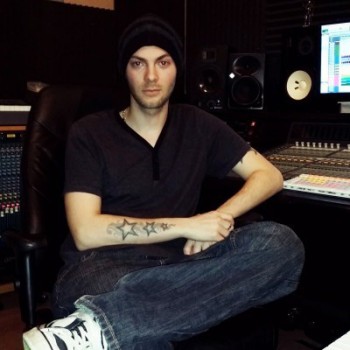
Tom Povall
Producer
50. Keep it all!
There are so many times that I have started something and just not felt it; instead of keeping it, it gets deleted. Months down the line, I am working on a new track, only to find that the piece I had deleted would have fitted perfectly! Just because you’re not feeling it at the time doesn’t mean it isn’t something that can’t be used later on. Keep everything, come back to it, play about with it some more, and it may turn out to be one of your favorite pieces.
What next?
Big thanks to all the songwriters who gave this collection of amazing songwriting tips. If you have any tips of your own that you would like to share, please feel free to do so in the comment section below. We hope you were able to gain some valuable insight from these expert songwriters.
If you’re a songwriter and there are tips that you feel should be included in this post, leave your comment section below or connect with us. We’ll surely take the time to add you to the post.


